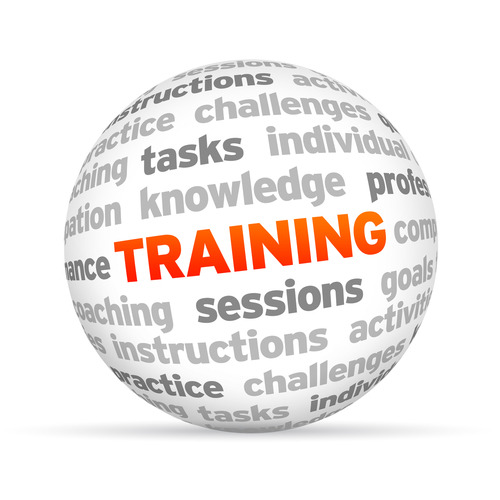 |
Insufficient training and a lack of training are two of the reasons that HR professionals cited when asked to identify obstacles that impede effective performance management in organizations, according to a recent survey.
The survey, conducted by the Society of Human Resource Management (SHRM) in collaboration with the National Center for the Middle Market (NCMM), also found that lack of managerial time, higher business priorities, and inconsistent evaluation standards were common factors that prevented organizations from giving their performance management a grade of A.
When asked to rate their own organization’s effectiveness in managing performance reviews, 53% of respondents gave themselves a grade ranging from a B to a C+, while 21% gave their organization a C. A mere 2 percent said their organization’s performance management deserved an A.
What is the most effective and cost-efficient way to provide safety training for your workforce? Try a demo of BLR’s remarkable TrainingToday® at no cost or obligation.
“Performance reviews are an effective tool when utilized correctly,” said Bettina Deynes, SHRM’s vice president of HR. “But in order for them to be effective, there needs to be support from the leadership team and sufficient training for managers.”
All too often, training programs focus on the procedures for filling out evaluation forms, rather than on how to conduct the performance appraisal interview, according to BLR®, publisher of Training Forum. As a result, there is often inconsistency in the way supervisors and managers administer the evaluation system, exposing the employer to potential complaints of discrimination.
Try a demo of BLR’s remarkable award-winning TrainingToday® at no cost or obligation. This includes the Workplace Safety Library. Get the details.
Performance appraisal training should focus more on the role the supervisor must play throughout the evaluation period—not on the paperwork. BLR recommends that supervisors be trained to:
- Develop a close working relationship with their subordinates;
- Create an ongoing opportunity for constructive criticism and counseling;
- Look at all aspects of an employee’s job performance;
- Be proactive about addressing marginal performance;
- Provide honest feedback;
- Gear standards to the specific job in question;
- Use objective standards that are relevant to the job and how it is being performed, rather than to the person;
- Back up judgments with facts such as production records, disciplinary reports, attendance records, and examples of work quality;
- Avoid allowing personalities and individual work habits to interfere with a true measurement of what the employee has done to meet the requirements of the job;
- Make certain employees have a clear understanding of all performance standards; and
- Ensure that complete records of all performance evaluations (if required by company policy) are kept in a confidential file.

I do agree with some of the outcomes from the survey analysis. I am still of the opinion that (not all) organisations do not allow practitioners to practice the professional skills required towards performance management. The outcomes will then result in a so called paper exercise.
Employees through continual assessment of the Role-Profile that might change due to economical and organizational change need to understand what is required of them, when, where and why. They need to see where they actually fit in as an asset to the organisations. How they can contribute not only towards their own but the economical growth of the country. THIS NEED TO BE TRAINED AND ASSESSED prior any work related functions.
Procedural compliance will always be a major factor as continues changes are happening towards Engineering Designs; Methods; Risk Factors; Resources and our oldest one Legislative compliance. We need to asked our self when last did we really analyze Organisational Role-profiles and align them with only the mentioned subjects.
We will then be supprice to see the non – conformity towards and Quality Occupational Skills Matrix and the employees understanding of it. No effective performance towards quality, safety, productivity, cost saving, absenteeism, Management, Leadership can be evaluated if we do not comply.
Thank you,
Abie Otto
December 5, 2014 12:46 pm
Reply
I do agree with some of the outcomes from the survey analysis. I am still of the opinion that (not all) organisations do not allow practitioners to practice the professional skills required towards performance management. The outcomes will then result in a so called paper exercise.
Employees through continual assessment of the Role-Profile that might change due to economical and organizational change need to understand what is required of them, when, where and why. They need to see where they actually fit in as an asset to the organisations. How they can contribute not only towards their own but the economical growth of the country. THIS NEED TO BE TRAINED AND ASSESSED prior any work related functions.
Procedural compliance will always be a major factor as continues changes are happening towards Engineering Designs; Methods; Risk Factors; Resources and our oldest one Legislative compliance. We need to asked our self when last did we really analyze Organisational Role-profiles and align them with only the mentioned subjects.
We will then be supprice to see the non – conformity towards and Quality Occupational Skills Matrix and the employees understanding of it. No effective performance towards quality, safety, productivity, cost saving, absenteeism, Management, Leadership can be evaluated if we do not comply.
– See more at: http://trainingdailyadvisor.blr.com/2014/11/survey-says-training-issues-impede-performance-management/#sthash.1NH5rV31.dpuf